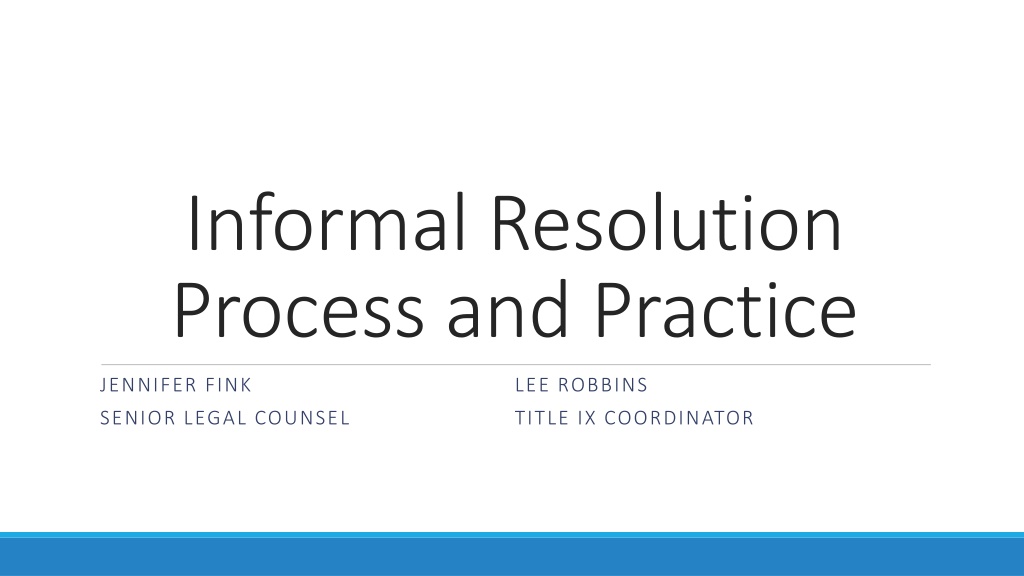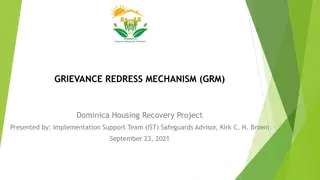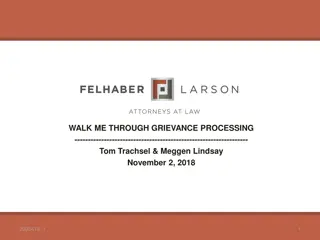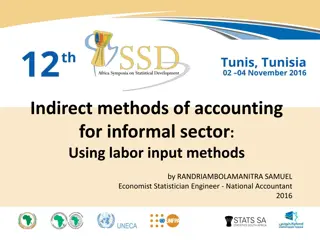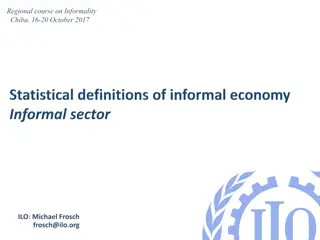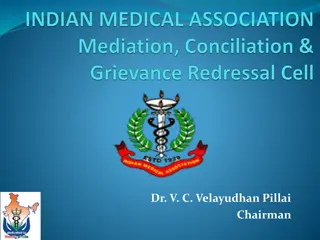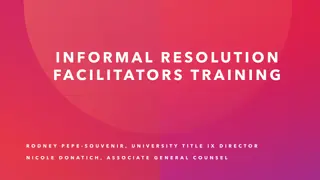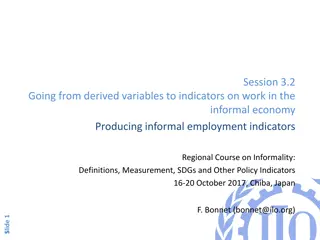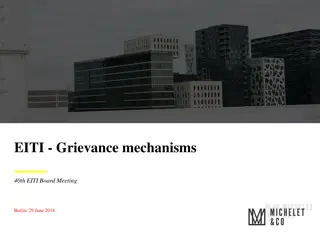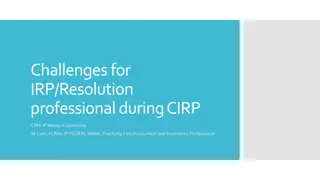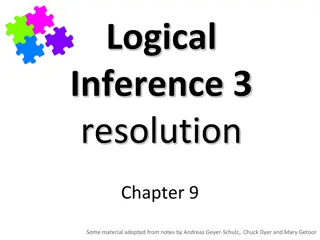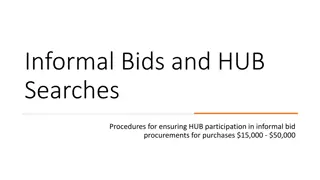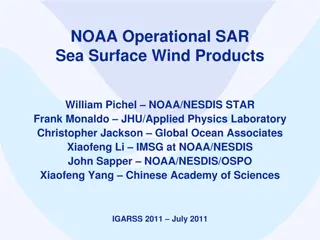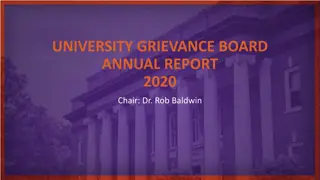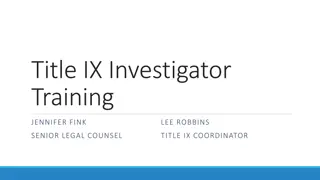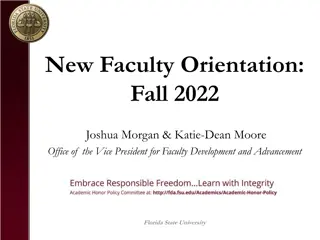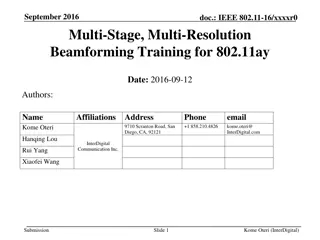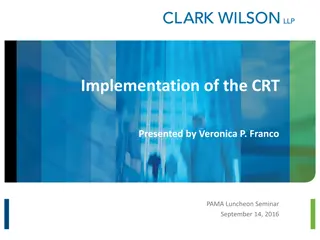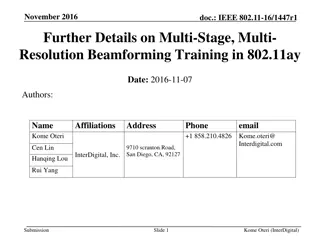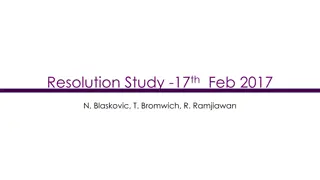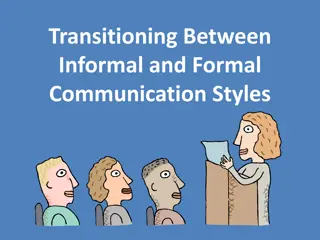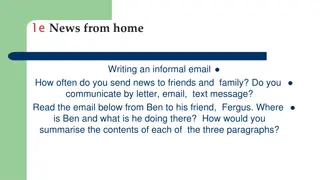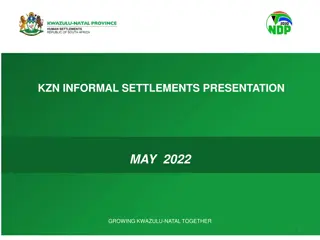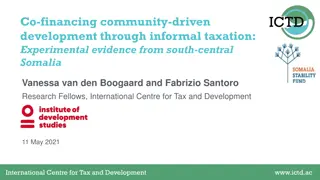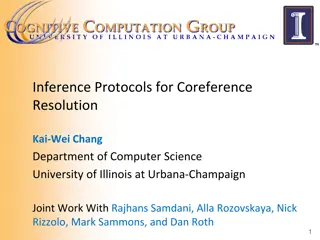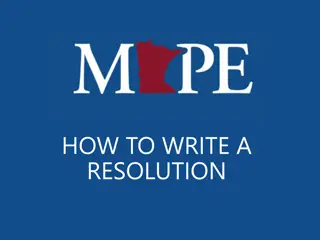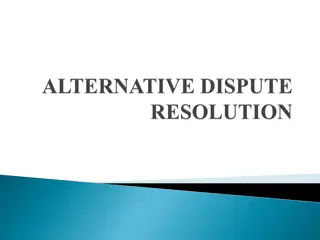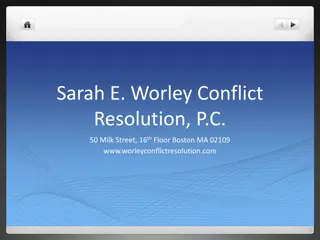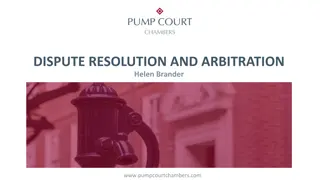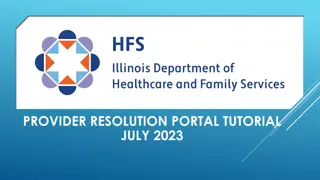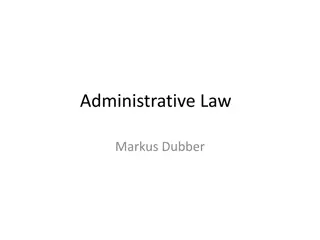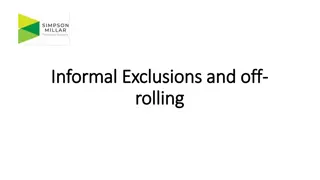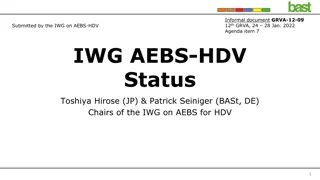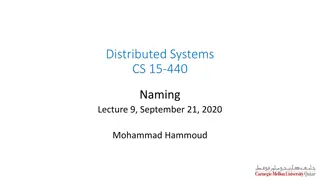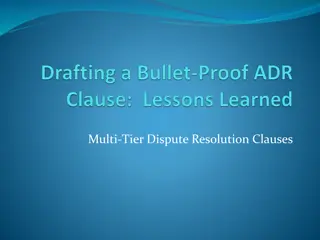Understanding Informal Resolution Process and Practice in Grievance Procedures
Exploring the process of informal resolution in grievance procedures, focusing on mediation, confidentiality, impartiality, and neutrality. Parties can voluntarily engage in informal resolution before a formal determination, with specific requirements and timeframes outlined. Mediation fosters self-determination through open communication, exploring options, and reaching agreements. The process prioritizes fairness and conflict resolution to address complaints effectively.
Download Presentation

Please find below an Image/Link to download the presentation.
The content on the website is provided AS IS for your information and personal use only. It may not be sold, licensed, or shared on other websites without obtaining consent from the author. Download presentation by click this link. If you encounter any issues during the download, it is possible that the publisher has removed the file from their server.
E N D
Presentation Transcript
Informal Resolution Process and Practice JENNIFER FINK LEE ROBBINS SENIOR LEGAL COUNSEL TITLE IX COORDINATOR
Agenda TAP 61 Grievance Procedures TAP 61 Informal Resolution - Mediation Mediation Practice Hypothetical Questions
TAP 61 Grievance Procedures After a Formal Complaint is filed, Parties may choose to participate in Informal Resolution before a determination is made regarding Respondent's responsibility. The University will facilitate Informal Resolution only where the Parties have voluntarily agreed to it in writing, following receipt of the information contained in the written notice received by both Parties in response to a Formal Complaint about Informal Resolution. Informal Resolution will not be offered to resolve allegations that an employee sexually harassed a student. [A]anyone who facilitates Informal Resolution will not have a conflict of interest or bias for or against Complainants or Respondents generally, or for or against a specific Complainant or Respondent. Following the filing of a Formal Complaint, a Hearing will usually occur within 60 days. However, the University will not compromise a thorough and fair process to meet the 60-day completion goal. This timeframe may be extended if the Parties elect to participate in Informal Resolution, which will typically extend the process by an additional 30 days.
TAP 61 Informal Resolution Overview of Process Requirements of Participating in Informal Resolution Notice and Consent to Proceed Mediation Information Timeframes Resolution Right to withdraw/Failure of Mediation Records Review of forms
Mediation Practice Mediation: Is confidential (some exceptions) Is impartial Is non-judgmental Is free from conflicts of interest and bias Fosters self-determination
Mediation Practice How does mediation work?
Mediation Practice Preparing for the mediation Opening/Introduction Identifying information, feelings, understandings, and desired outcomes Exploring options Mediation agreement
